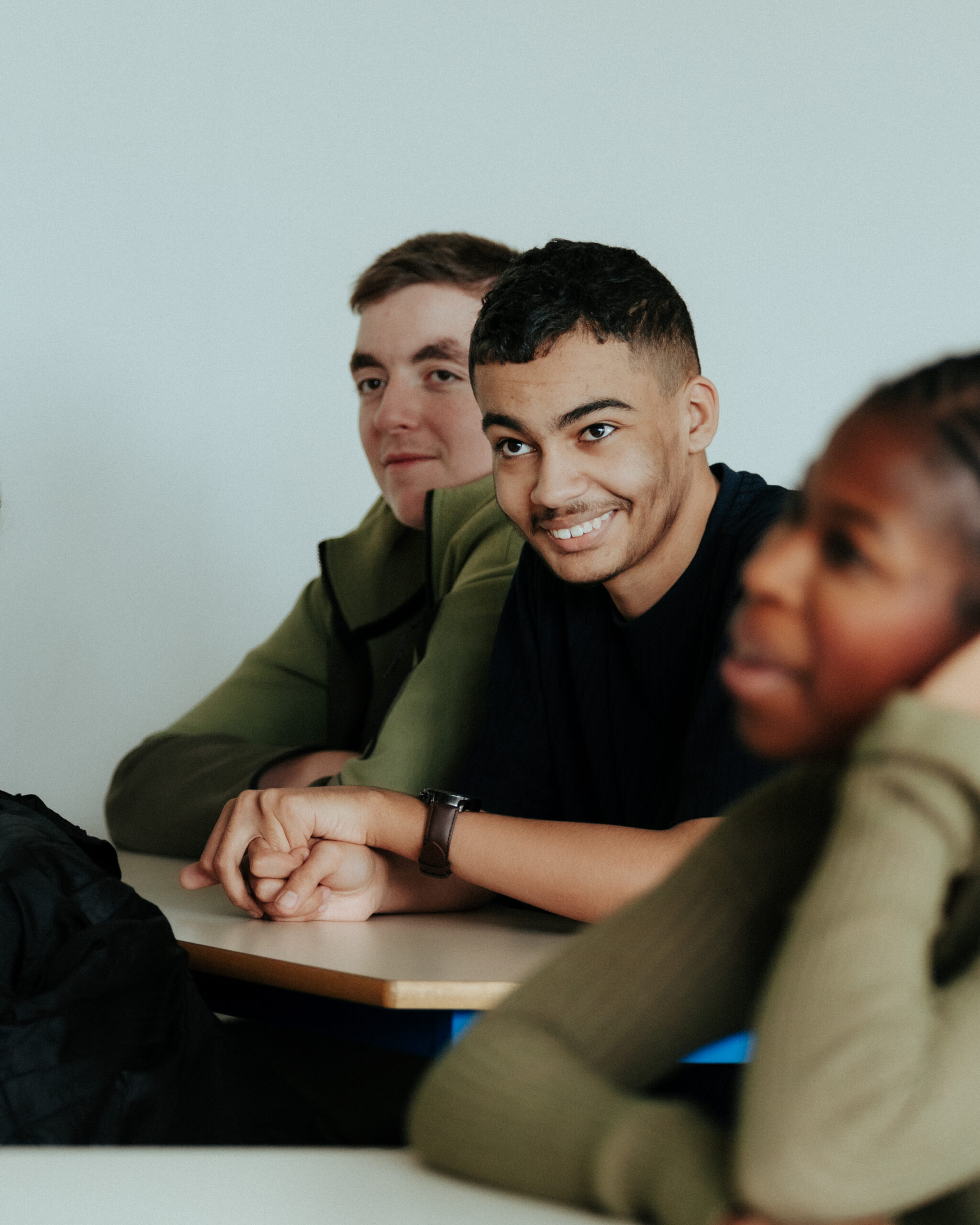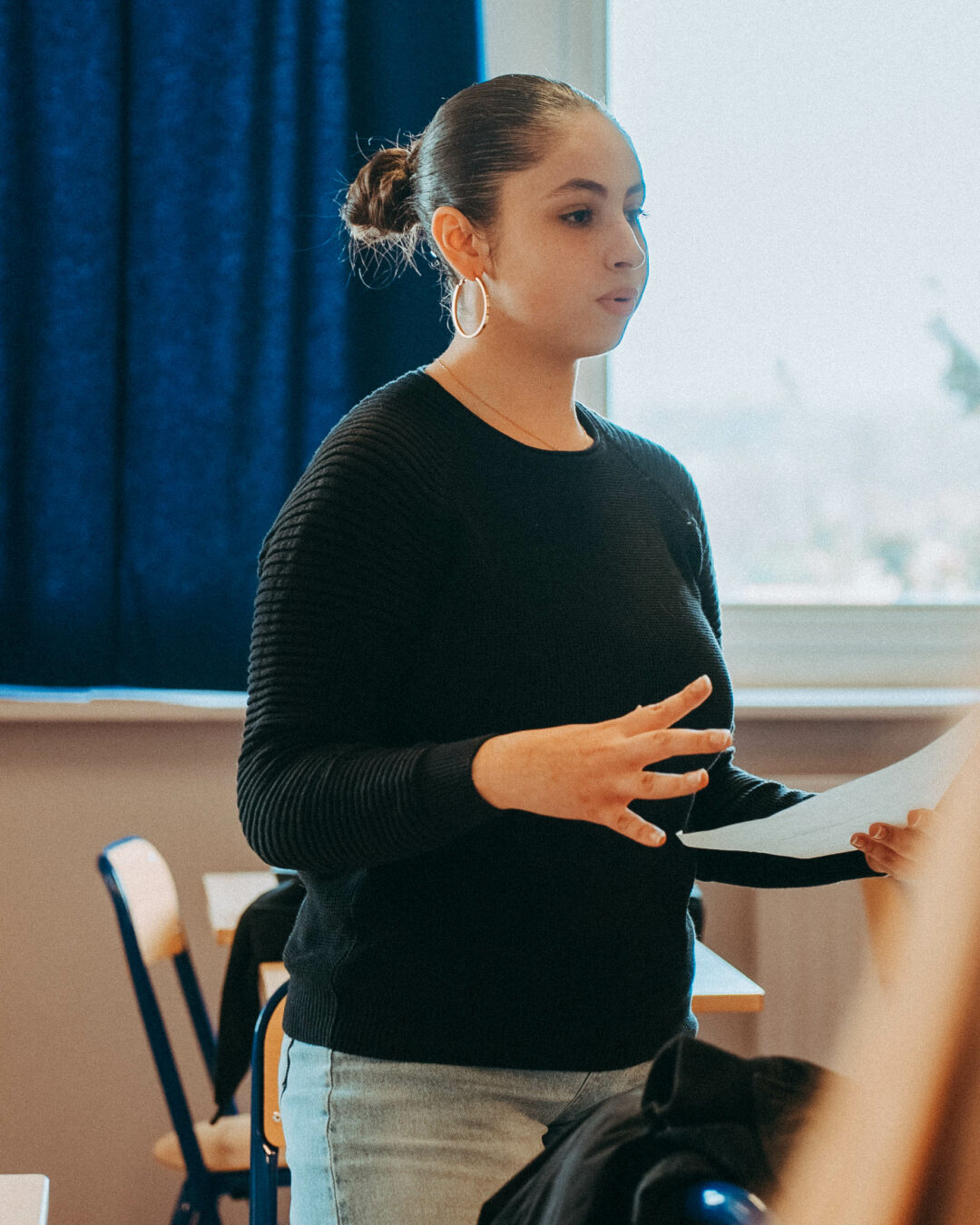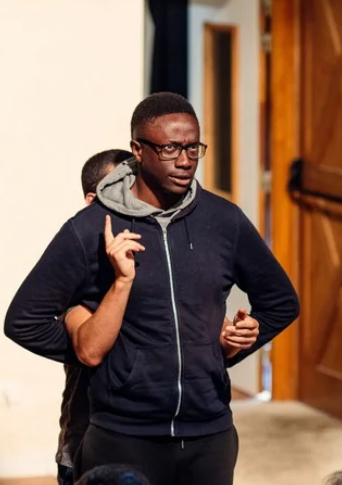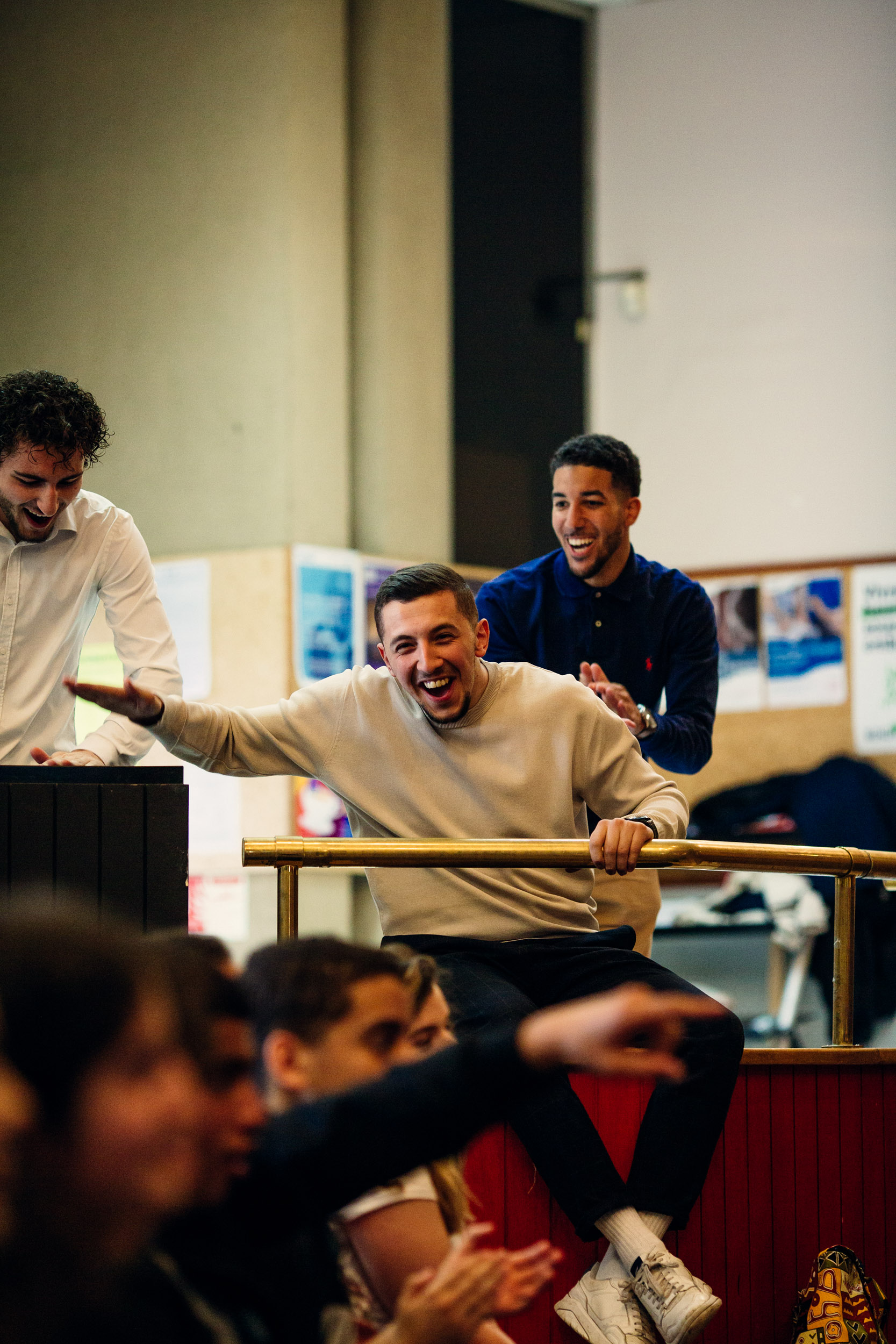
Greazi Abira
The Power of Speech to Change the World
Greazi Abira, soon to be 28, is a dynamic and ambitious young man. As a resident of Bondy, he was born in Montfermeil and has also lived in Clichy-sous-Bois, in the Chêne Pointu and Bosquets housing estates. A fairly good student, driven by the strictness of his father, Greazi has always shown strong academic potential.
Challenged by his friends, he joined a high school’s support program to gain admission to Sciences Po Paris. From his first steps in the institution, Greazi realized how crucial art of public speaking was important in personal and professional development — an art often less emphasized in less privileged environments. The idea began to take shape. In 2015, he teamed up with Ahmet Akyurek and Yacine Ayadi, respectively students at Sciences Po and the University of Paris-Panthéon-Assas, to create Graine d’Orateur 93.
The association quickly became a real catalyst for skills and opportunities for young people from working-class backgrounds. Its first aim? To give attendants the tools to speak with confidence in front of an audience, a jury, an employer, or any group. Beyond public speaking, the association promotes the culture of debate, dialogue and reasoning. Since its creation, Graine d’Orateur has expanded and has reached over 12,000 people in 90 municipalities across France through 125 partnerships. This is great news to struggle socio-economic inequalities!
Hello Greazi,
What did motivate you and your friends to create Graine d’Orateur 93?
During our guidance week at Sciences Po, we had a course on public speaking. We loved it! We went to speak with the professor who initiate the session to tell him how amazing it was. We wished we had had these kinds of courses in high school. We asked him for advice on how to become more eloquent, how to speak better. The professor then introduced us to a university debate clubs federation. We really discovered this world. Seeing how much we were improving, we wanted to share this culture with those around us!
We worked to break down these debate clubs’ line. They had previously been reserved for prestigious schools. We had to make them more accessible and open to a wider diversity of audiences. We were convinced that if we unlocked the art of speaking, we could unlock the future for disadvantaged populations. Graine d’Orateur 93 was born from the desire to pass on everything we had learned through our courses and debate clubs at Sciences Po, starting with our old high school.

Which realization led to this initiative?
When we entered Sciences Po, we quickly saw the difference. Even though we were top students in our high school, we encountered even stronger profiles. But when we took a step back, we realized we weren’t that different from our peers. Culturally, each of us knew things that others didn’t. It was simply a matter of finding a way to pass on a certain culture and specific codes to allow as many young people as possible to enter Sciences Po, because we were aware that we were a statistical exception.
What specific skills do you aim to develop with Graine d’Orateur 93?
In any environment, it’s all about adaptation. I like to say that you need to be a chameleon. A chameleon stays a chameleon no matter what, but in different settings, depending on its emotions—whether it’s defending itself, feeling happy, or something else—it changes colors. But it remains a chameleon. That was the idea.
Psychological studies show that children from underprivileged backgrounds dream less. That’s how society works. But once we recognize this, how can we make the most of it with our resources? When we started our public speaking training, we were inspired by the =Anglo-Saxon approach, which is more debate-focused. In England or in the USA, debate clubs and public speaking culture are widespread. Why do we like it? Because it’s about confronting ideas.
The French view of public speaking is more rooted in literature, the beauty of words, etc. That wasn’t our style. We felt that focusing on the beauty of words would mean distorting how we naturally speak. Maybe eloquence can also reach people by saying things directly? We preferred rhetoric, because for us, being eloquent means knowing the codes and adapting to the audience. Being eloquent is knowing how to make yourself understood for a specific purpose. We wanted to pass this on to our peers, to help them to open doors they once thought were closed.
The association’s ambitions gradually evolved. At first, we wanted to help our audience to improve their public speaking skills to increase their chances of entering Sciences Po. But we quickly asked ourselves if getting into Sciences Po was really the ultimate goal. It became clear that this was just a means to an end. We no longer saw the point of running workshops solely for that purpose. Graine d’Orateur’s mission evolved.

Our workshops now aim to provide keys for all stages of life: finding internships, learning, applying to prestigious schools, etc. If we can overcome the fear of speaking, we can overcome other fears too. If I dare to express myself and defend my ideas, I’ll dare to defend my ambitions. I’ll also feel able to pursue what I want, to feel legitimate. In the context of equal opportunity, we aim at promoting social and professional inclusion of as many people as possible.
We made two bets with Graine d’Orateur 93 to block impostor syndrome.
The bet on excellence: by excellence, I don’t mean elitism. Aristote said, “Excellence is an art won by continuous training”. The more we practice, the more we excel at something. It’s not about doing more than others but simply being better at what we do by practicing every day, with the idea that excellence is an ideal.
The bet on peer support: a concept that comes from the medical field. If we want to help young people from working-class backgrounds, this means that other young people from those same backgrounds would be the best placed to help them, for two reasons: they understand the feelings and experiences of the people they are training; they provide representation that helps break down fears.
What were the main challenges or difficulties you faced while developing the association?
There were many. The first one that comes to my mind is related to the concept of “excellence” we promoted. It immediately caused fear, especially because of our young age. I was 17 at the time, and people we were addressing were asking, “Who are these young people preaching excellence?”. We struggled to establish legitimacy with teachers and to get them on board with our message.
Another difficulty came from students. It rarely goes wrong, but it has happened, and we have questioned the very existence of our association. Fortunately, we have moved forward and have run over 500 workshops since 2015. The question of legitimacy came up but never lasted long. The beneficiaries of our programs are very engaged and happy with the results.
What have been the most rewarding moments or significant achievements for Graine d’Orateur so far?
There are many, but I’ll choose three.

On an individual level, Graine d’Orateur 93, I questioned about my real motivation: did I initiate the program by selfishness, to be proud of me. But once, during a workshop a young attendant surprised me when saying “Graine d’Orateur 93 is like a software program to hack life”. This statement was powerful because the word “hack” really resonated with what Graine d’Orateur is about — fighting to reach your ambitions. On an individual level, Graine d’Orateur 93 allows some people to outsmart the system and find their place. Of course, I won’t help or save everyone, and that’s not my goal, but I believe in the butterfly effect.
Another rewarding moment comes when teachers approach us after a workshop and say, “I’ve never heard that student’s voice before” or “I saw them in a new light”. At these very moments when we know we made the right choices!
The last victory I’d like to highlight is something that happened in 2019. We were about to graduate and we were thinking about how to end the year on a high note. Our idea was to expand beyond Île-de-France because we realized that rural areas faced similar issues than suburbs. We then asked ourselves about the forgotten youth in these areas who also needed attention. We organized a nationwide public speaking tour with free workshops in high schools, allowing us to meet young people from both rural and urban areas with their own unique realities.

What are your hopes for the future of the association??
It may sound idealistic, but I believe that any association, when it’s created, hopes one day to no longer exist. The association exists because a need isn’t being properly addressed, but the goal is to eventually solve that problem. So, my dream is for Graine d’Orateur 93 to no longer need exist.
But Graine d’Orateur 93 will no longer exist when codes of public speaking and their mastery have a prominent place in all social circles. Today, French culture prioritizes writing. Nicolas Boileau said, “What is well conceived is clearly stated, and the words to say it come easily”. That’s absolutely true! Writing, and the major place that French literature occupies, is often valued over speech, which is often seen as mere showmanship. I think we should restore the importance of spoken word.
I find it is beautiful that Greeks people used the word “logos” to mean both “action”, “speech”, “reasoning” and “mind”. What sets us apart the most from animals, according to Greek culture, is the logos — our ability to reason, act, and speak. Speaking is a way of making your existence known, of making it tangible. And I would love to see public authorities take up this issue and bring rhetoric courses back to schools, giving speech the importance it deserves.
